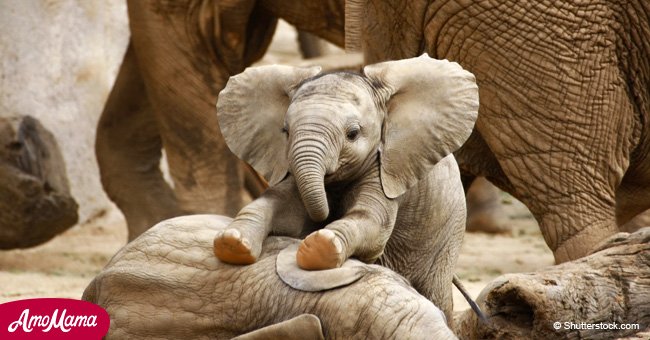
Nearly 90 elephants found dead near a famous wildlife sanctuary
Botswana has always been a safe haven for elephants, as the country has historically had strong anti-poaching forces protecting its borders. But the arrival of a new president has changed that.
Elephants Without Borders has been conducting an aerial survey of Botswana to determine the scale of poaching in the country, and recently stumbled across a horrific scene of nearly 90 fresh elephant carcasses, in the heart of the country.
The scale of these deaths is the largest recorded in Africa in history, with 87 dead elephants killed for their tusks.
The Southern African country has the highest elephant population in all of Africa, with an estimated 130,000 elephants. Over the years, with other African countries suffering greatly at the hands of poachers, Botswana has been largely exempt from this problem.
The sudden spike in poaching death coincides with the disarming of Botswana's anti-poaching unit, an action that was undertaken in May following in the swearing in of the country's new president, Mokgweetsi Masisi. His office could not explain why.
Dr Mike Chase of Elephants Without Borders spoke up about the atrocity upon finding the elephants, explaining that while all were killed in the past three months, the majority only met their deaths in the last few weeks.
"I'm shocked, I'm completely astounded. The scale of elephant poaching is by far the largest I've seen or read about anywhere in Africa to date."
"When I compare this to figures and data from the Great Elephant Census, which I conducted in 2015, we are recording double the number of fresh poached elephants than anywhere else in Africa," he said.
Chase added that a further five white rhinos had also been killed for their horns in the country.
His census estimates that approximately a third of the elephant population in the whole world has been poached in the past decade.
These numbers have historically not plagued Botswana due to their harsh attitude towards poachers. Up until May, anti-poaching units were well trained and well armed in order to deal with the problem.
Previously, most elephant poaching incidents in Botswana have been along the borders where they are most vulnerable, but this enormous group was found deep in the heart of the country, close to the protected Okavango Delta Wildlife Sanctuary.
"People did warn us of an impending poaching problem and we thought we were prepared for it," said Mr Chase. "The poachers are now turning their guns to Botswana. We have the world's largest elephant population and it's open season for poachers. Clearly we need to be doing more to stop the scale of what we are recording on our survey."
Chase has urged the government to respond swiftly to the evident threat, and is fearful that the matter has been kept quiet in order to protect the country's reputation rather than the wildlife.
"This requires urgent and immediate action by the Botswana government," said Mr Chase. "Botswana has always been at the forefront of conservation and it will require political will. Our new president must uphold Botswana's legacy and tackle this problem quickly. Tourism is vitally important for our economy, jobs, as well as our international reputation, which is at stake here as being a safe stronghold for elephants."